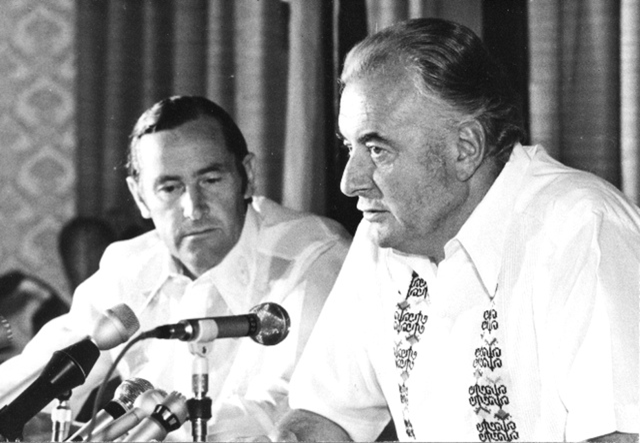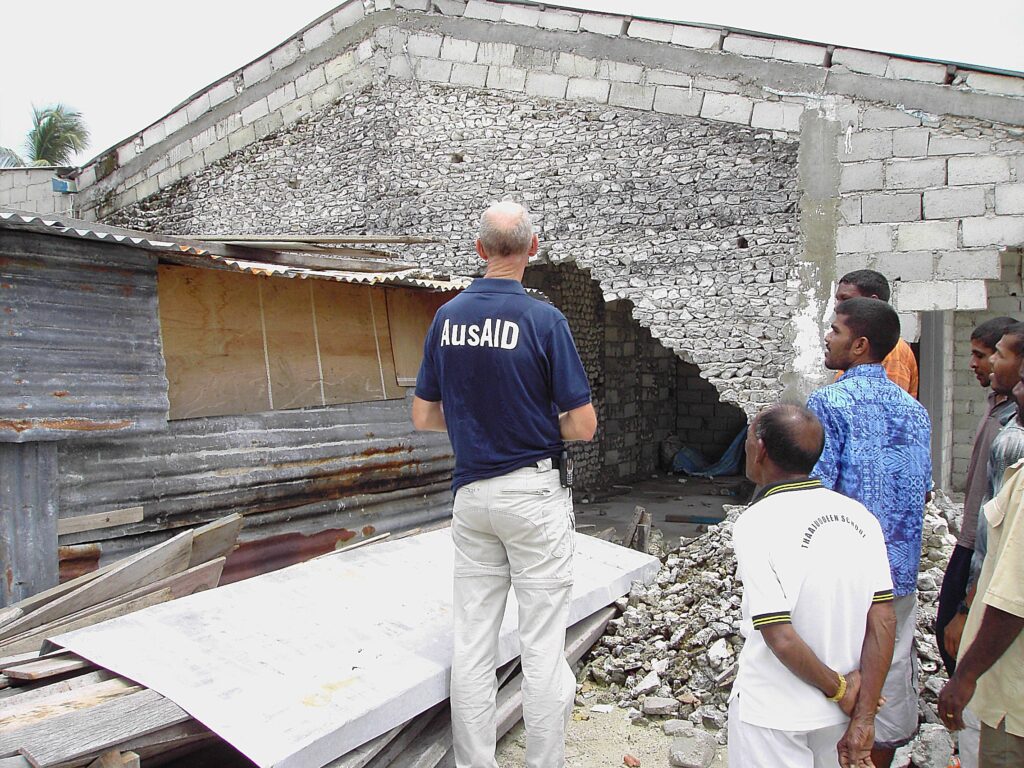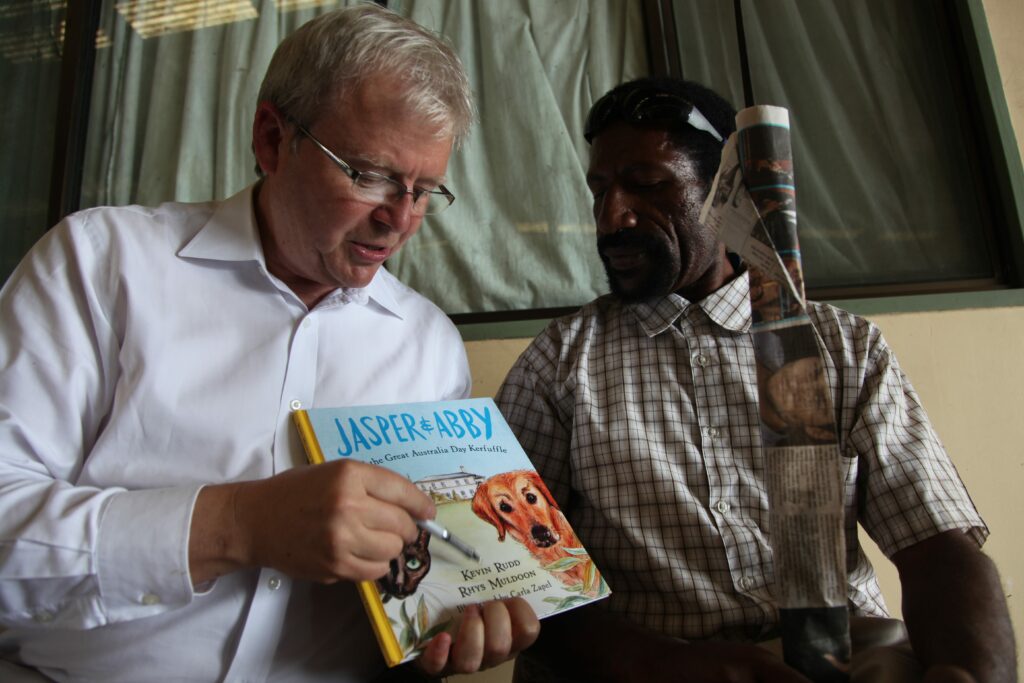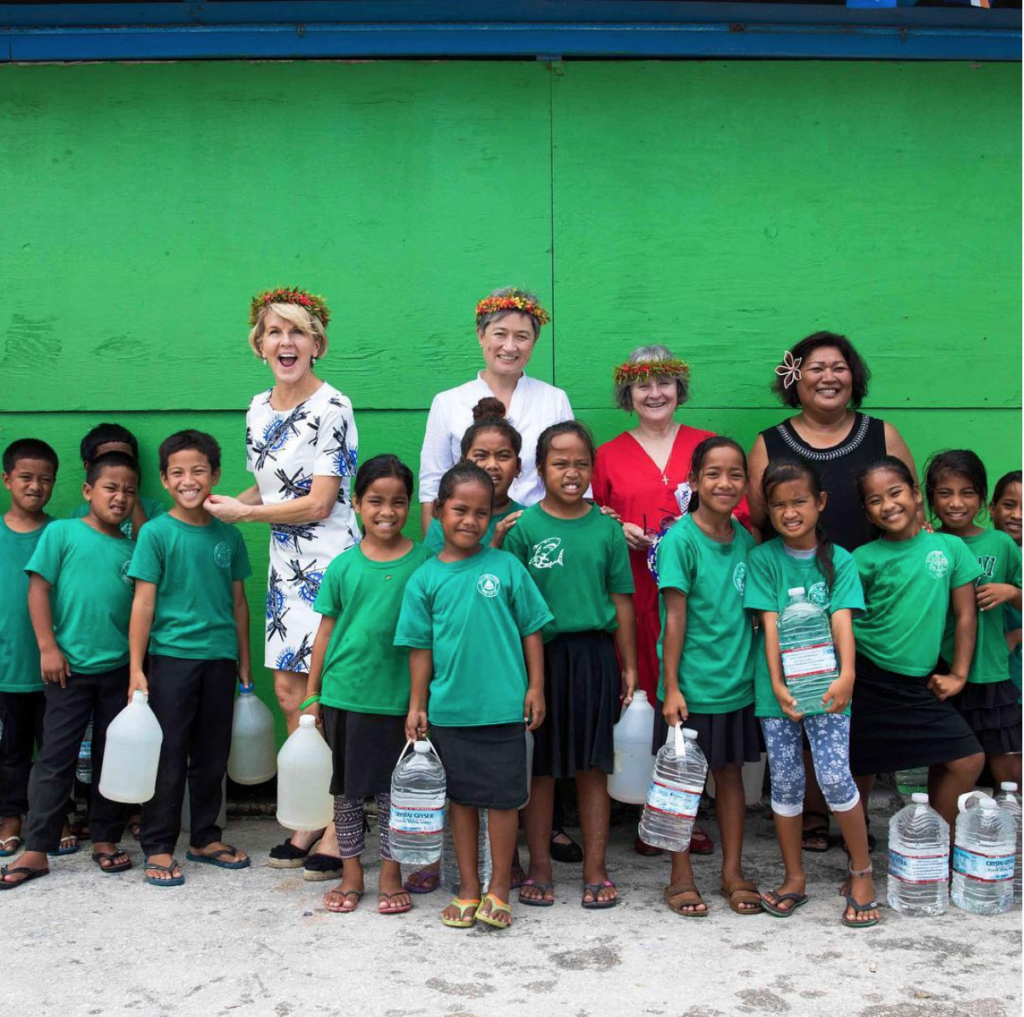Take a look at four leadership moments that shaped Australian Aid.
Australian aid has often been a contentious issue. It constantly requires selfless leadership to uphold the needs of others, particularly as there is no personal benefit to the leaders themselves. In the fog of history, one can recall a few times when Australia was blessed with leaders who walked out these virtues with strength in their strides.
Let’s refresh our memories by revisiting four of those moments when a leader defied the odds, and see how they can inspire us in an age with plenty of spin, but often too little spine.
Gough Whitlam: Turning strangers into friends

The game changer in the aid game was Gough Whitlam. His creation of the Australian Development Assistance Agency became our first dedicated aid agency. Expenditure rose from $220 million to $350 million in four years alone, the highest our aid has ever been, as a proportion of Gross National Income, at 0.45 percent.
His commitment was put to the test in 1971, while Australia was still hung over with Cold War Fear of China. Despite the opposition’s condemnation and media hammering, Whitlam made the politically risky move to establish democratic ties with China.
Before long, this opening up of dialogue between historical foes spread to neighbouring nations, and gave birth to ASEAN. This partnership with Southeast Asian Nations, with its legacy of pledging financial assistance to development programs, is still standing today.
Once feared strangers became understood as neighbours in need; loathing gave way to compassion and cooperation.
John Howard: Giving more than ever to our neighbours

Boxing Day, 2004. The tsunami that claimed 230,000 lives required a compassionate response that went way beyond Australia’s typical aid allotment. Rumours rolled around in the ballpark of $500 million in disaster aid. This was already over a third more than in the standing aid budget.
John Howard had a choice: stick with the safety of the status quo or be the humanitarian that puts people before money.
He went for the latter, flying in the face of the purveying economic thought of the time, and pledged $1 billion in foreign aid assistance to the relief effort.
This was the biggest donation in Australia’s history of foreign aid, a stand-out symbol of the generosity we are capable of. So much so in fact, that it energised the international community into a competition of who could give the most.
John Howard was also the first world leader to contact President Susilo Bambang Yudhoyono after the disaster. Howard’s posture extended their relationship beyond funding dollars towards a genuine concern for a neighbour.
Howard’s decision is a strong testament; there are times that call each of us to be bolder than we think we ought to be. When carried with conviction, this inspires others to catch your vision, and move the immovable.
Kevin Rudd: Standing tall in shifting sands

As Prime Minister and as Foreign Minister, Kevin Rudd was outspoken in committing himself to raising foreign aid.
The political climate had well and truly changed since the Whitlam era. Terrorism drastically shifted the Australian public psyche, planting seeds of erosion against the cause of foreign aid.
Despite this, Rudd purposefully commissioned a report into AusAID to the ensure it had the capacity to receive a doubling of funding. The report’s methodical approach helped restore confidence in critics that foreign aid can be a win-win for all involved, and was worth the investment. The result was a binding to the goal of raising Australia’s foreign aid to 0.5 percent of GNI. Backing the financial target was an irresistible appeal to our national identity.
“We believe it is right to do what we can to help our fellow human beings out of poverty because as Australians it is not in our nature to be indifferent to the suffering of others.”
When Rudd made this appeal to the media, there was little retort. No one with any sense of humanity can reject a reasonable argument based on this common ideal.
Julie Bishop: Levelling the playing field for everybody

Her tenure as Foreign Affairs Minister was somewhat controversial, as she resided over the largest cuts to the aid budget in history. But there was one moment that stood out in the leadership of Ms Bishop when it came to the aid programme.
A few years down the track of post-GFC Australia, scepticism towards overseas development assistance resurfaced towards an attitude of selfishness. Was it worth investing aid into developing nations?
Bishop’s response was innovative. She re-focused aid towards empowering women and girls.
Women in poverty are particularly vulnerable, but also hold immense potential; there is increasing evidence that expanding woman’s opportunities is key to accelerating development.
Trusting this evidence, Bishop set our commitment high, and now 80 percent of all aid programs must address gender issues during implementation. This is more than double the OECD average.
In this act Julie Bishop demonstrated the stunning impact courageous leadership grounded in expert advice can achieve. Who knows what new paths are still waiting to be forged.
————
It is true, the above moments are attributed to individual triumphs of exceptional leadership. In reality, these kinds of moments are most effective when follow-through is in the form of ongoing bipartisanship. This takes an act of courage, to step in a new direction, respectfully, and petition traditional enemies to trust.
The key then, to leadership that transforms, is consistency. These momentary triumphs are just that, momentary. They cannot sustain us. This year Australia’s generosity towards overseas development assistance has sunk to its lowest levels, ever.
To rebuild Australia’s respect in the eyes of the international community, and to see people flourish in effective aid programmes, there is something you can do.
Our recent success at Voices for Justice 2018 saw nearly 100 MPs and Senators bear witness to our ask to increase Australia’s aid commitment. And following that event in early December, the ALP announced that if elected, they would rebuild the aid budget each year they are in office.
Now it’s an election year, and we need to keep up the dialogue with local members, with your families and in your churches.
You could meet with your MP or run a community forum! We’ve created all the resources needed to help walk you through the options.
Go to our Advocacy Resources page and see what you could do to advocate for the poor this year!